
-
 Woman charged over Louvre heist tears up in court
Woman charged over Louvre heist tears up in court
-
Diomande dazzles as Leipzig go two points behind Bayern
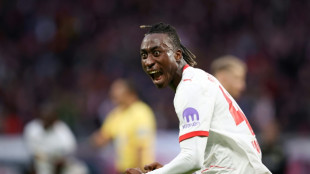
-
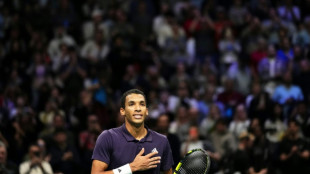 Auger-Aliassime downs Bublik to reach Paris Masters final
Auger-Aliassime downs Bublik to reach Paris Masters final
-
Villarreal crush Rayo to move second in La Liga

-
 Female suspect, 38, charged in Louvre heist: AFP
Female suspect, 38, charged in Louvre heist: AFP
-
US not sending any high-level officials to COP30

-
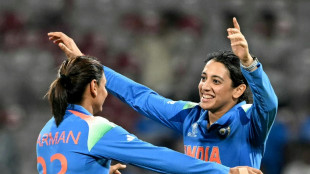 India captain Kaur sees World Cup final as possible turning point
India captain Kaur sees World Cup final as possible turning point
-
'Not out of the woods': What now for Britain's ex-prince Andrew?
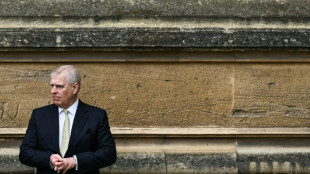
-
 Tens of thousands of Serbians mark first anniversary of deadly train station collapse
Tens of thousands of Serbians mark first anniversary of deadly train station collapse
-
Tanzania president wins 98% in election as opposition says hundreds killed

-
 Vieira 'no longer' manager of troubled Genoa: club
Vieira 'no longer' manager of troubled Genoa: club
-
Tanzania president wins 98% of votes after violence-marred polls

-
 South Korea hosts Xi as Chinese leader rekindles fraught ties
South Korea hosts Xi as Chinese leader rekindles fraught ties
-
England's batting exposed as New Zealand seal ODI series sweep

-
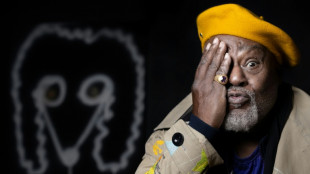 Funk legend turned painter George Clinton opens show in Paris
Funk legend turned painter George Clinton opens show in Paris
-
Traditional mass wedding held in Nigeria to ensure prosperity

-
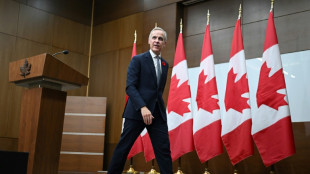 Canada PM says Xi talks 'turning point', apologises to Trump
Canada PM says Xi talks 'turning point', apologises to Trump
-
Iranian tech prodigies battle it out with robots

-
 Maldives begins 'generational ban' on smoking
Maldives begins 'generational ban' on smoking
-
Explorers seek ancient Antarctica ice in climate change study
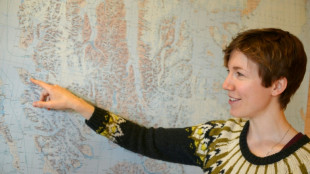
-
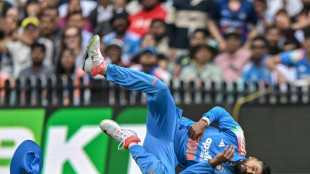 India's Iyer discharged from hospital after lacerated spleen
India's Iyer discharged from hospital after lacerated spleen
-
Serbia marks first anniversary of deadly train station collapse

-
 Latin America weathered Trump tariffs better than feared: regional bank chief
Latin America weathered Trump tariffs better than feared: regional bank chief
-
Bangladesh dockers strike over foreign takeover of key port

-
 Tanzania president wins election landslide after deadly protests
Tanzania president wins election landslide after deadly protests
-
Dodgers, Blue Jays gear up for winner-take-all World Series game seven

-
 Taiwan's new opposition leader against defence spending hike
Taiwan's new opposition leader against defence spending hike
-
Dodgers hold off Blue Jays 3-1 to force World Series game seven
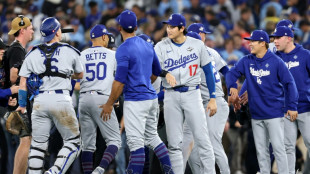
-
 Crowns, beauty, fried chicken: Korean culture meets diplomacy at APEC
Crowns, beauty, fried chicken: Korean culture meets diplomacy at APEC
-
Panama wins canal expansion arbitration against Spanish company

-
 Myanmar fireworks festival goers shun politics for tradition
Myanmar fireworks festival goers shun politics for tradition
-
China to exempt some Nexperia orders from export ban

-
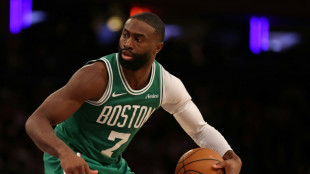 Sixers suffer first loss as NBA Cup begins
Sixers suffer first loss as NBA Cup begins
-
China's Xi to meet South Korean leader, capping APEC summit

-
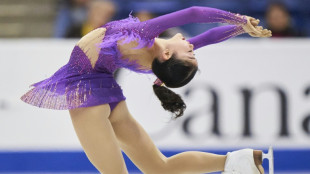 Japan's Chiba leads after Skate Canada short program
Japan's Chiba leads after Skate Canada short program
-
Finland's crackdown on undocumented migrants sparks fear

-
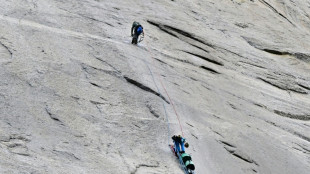 Climbers test limits at Yosemite, short-staffed by US shutdown
Climbers test limits at Yosemite, short-staffed by US shutdown
-
Gstaad gives O'Brien record 21st Breeders' Cup win

-
 After the tears, anger on Rio's blood-stained streets
After the tears, anger on Rio's blood-stained streets
-
Sinner boosts number one bid in Paris, to face Zverev in semis

-
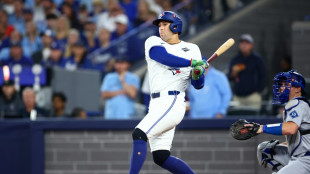 Springer back in Toronto lineup as Blue Jays try to close out Dodgers
Springer back in Toronto lineup as Blue Jays try to close out Dodgers
-
Nationals make Butera MLB's youngest manager since 1972

-
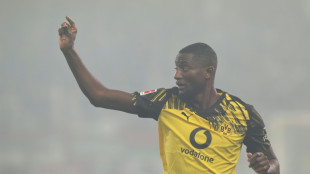 Guirassy lifts Dortmund past Augsburg ahead of Man City clash
Guirassy lifts Dortmund past Augsburg ahead of Man City clash
-
G7 says it's 'serious' about confronting China's critical mineral dominance

-
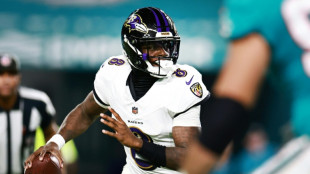 NFL fines Ravens $100,000 over Jackson injury status report
NFL fines Ravens $100,000 over Jackson injury status report
-
NBA refs to start using headsets on Saturday

-
 Trump says Christians in Nigeria face 'existential threat'
Trump says Christians in Nigeria face 'existential threat'
-
French-Turkish actor Tcheky Karyo dies at 72
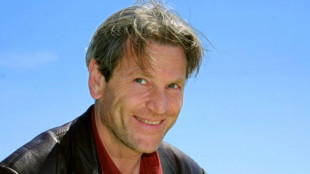
-
 Food stamps, the bulwark against hunger for over 40 mn Americans
Food stamps, the bulwark against hunger for over 40 mn Americans
-
Trump keeps world guessing with shock nuclear test order


Nobel scientist uncovered tiny genetic switches with big potential
Harvard geneticist Gary Ruvkun vividly remembers the late-night phone call with his longtime friend and now 2024 Nobel Prize in Medicine co-laureate Victor Ambros, when they made their groundbreaking discovery of genetic switches that exist across the tree of life.
It was the early 1990s. The pair, who had met a decade earlier and bonded over their fascination with an obscure species of roundworm, were exchanging datapoints at 11 pm -- one of the rare moments Ambros could steal away from tending to his newborn baby.
"It just fit together like puzzle pieces," Ruvkun told AFP in an interview from his home in a Boston suburb, shortly after learning of the award on Monday. "It was a eureka moment."
What they had uncovered was microRNA: tiny genetic molecules that act as key regulators of development in animals and plants, and hold the promise of breakthroughs in treating a wide range of diseases in the years ahead.
Although these molecules are only 22 "letters" long -- compared to the thousands of lines of code in regular protein-coding genes -- their small size belies their critical role as molecular gatekeepers.
"They turn off target genes," Ruvkun explained.
"It's a little bit like how astronomy starts with looking at the visible spectrum, and then people thought 'If we look with X rays, we can see much higher energy events,'" he added.
"We were looking at genetics at much smaller scales than it had been looked at before."
- Dismissed at first -
Their discovery had its roots in early investigations into C. elegans, a one-millimeter-long roundworm.
Ambros and Ruvkun were intrigued by the interplay between two genes that seemed to disrupt the worm's normal development -- causing them either to stay in a juvenile state or acquire adult features prematurely.
The genetic information contained in all our cells flows from DNA to messenger RNA (mRNA) through a process called transcription, and then on to the cellular machinery where it provides instructions on which proteins to create.
It's through this process, understood since the mid-20th century, that cells become specialized and carry out different functions.
But Ambros and Ruvkun, who began their work in the same lab before moving to different institutions, discovered a fundamentally new pathway for regulating gene activity through microRNAs, which control gene expression after transcription.
They published their findings in back-to-back papers in Cell in 1993, but at first, the discovery was dismissed as an esoteric detail, likely irrelevant to mammals.
"We were considered an oddity in the world of developmental biology," Ruvkun recalled. Even he had little idea their work would one day be celebrated by the wider scientific community.
That all changed in 2000 when Ruvkun's lab discovered another microRNA that was present throughout the tree of life -- from roundworms to mollusks, chickens, and humans.
- 'Celebrating like crazy' -
At the time, the human genome was still being mapped, but the portion that was complete was available to researchers.
"I think it was probably one-third done, and I could already see (the new microRNA) in that one-third of the human genome," said Ruvkun. "That was a surprise!"
Since then, the microRNA field has exploded, with more than 170,000 citations currently listed in biomedical literature.
More than 1,000 microRNAs have been identified in human DNA, and some are already being used to better understand tumor types and develop treatments for people with chronic lymphocytic leukemia.
Trials are also underway to develop microRNAs as treatments for heart disease.
On the morning of their Nobel win, the two old friends "Facetimed and high-fived," Ruvkun said. "It's magnificent, and we're going to be celebrating like crazy."
A.Zbinden--VB



